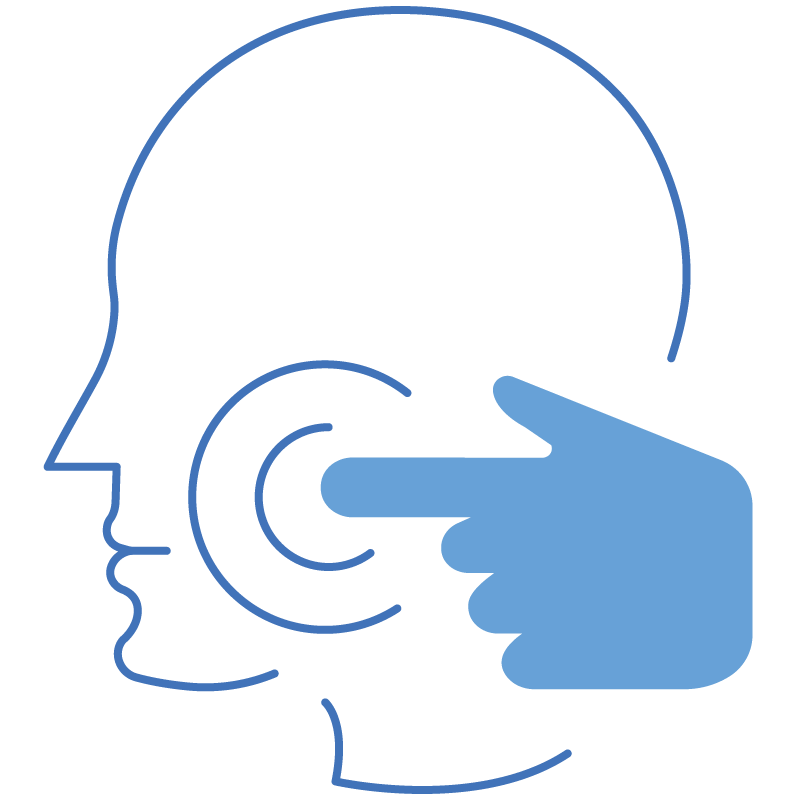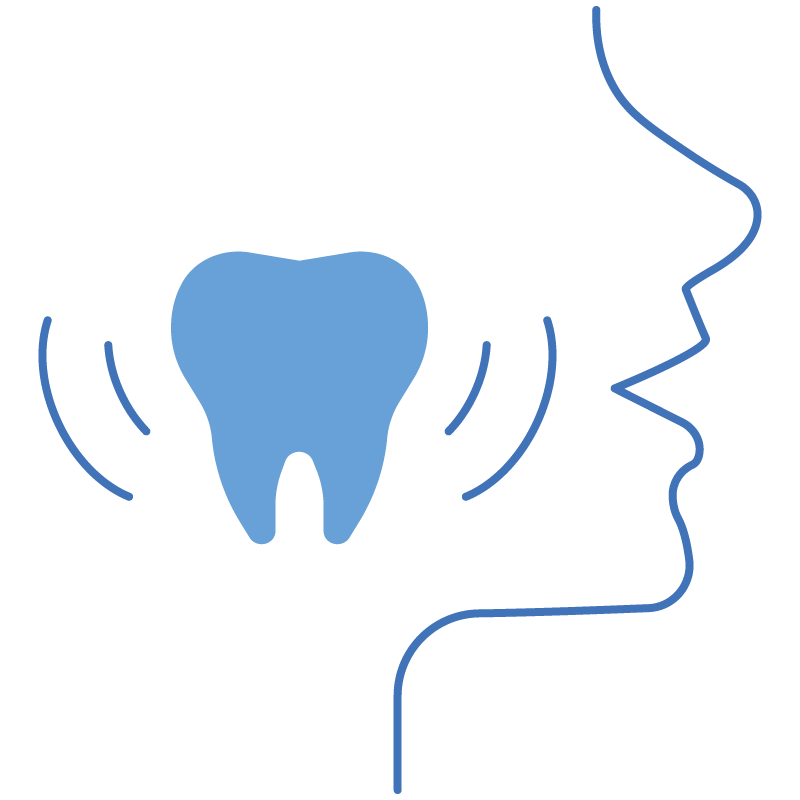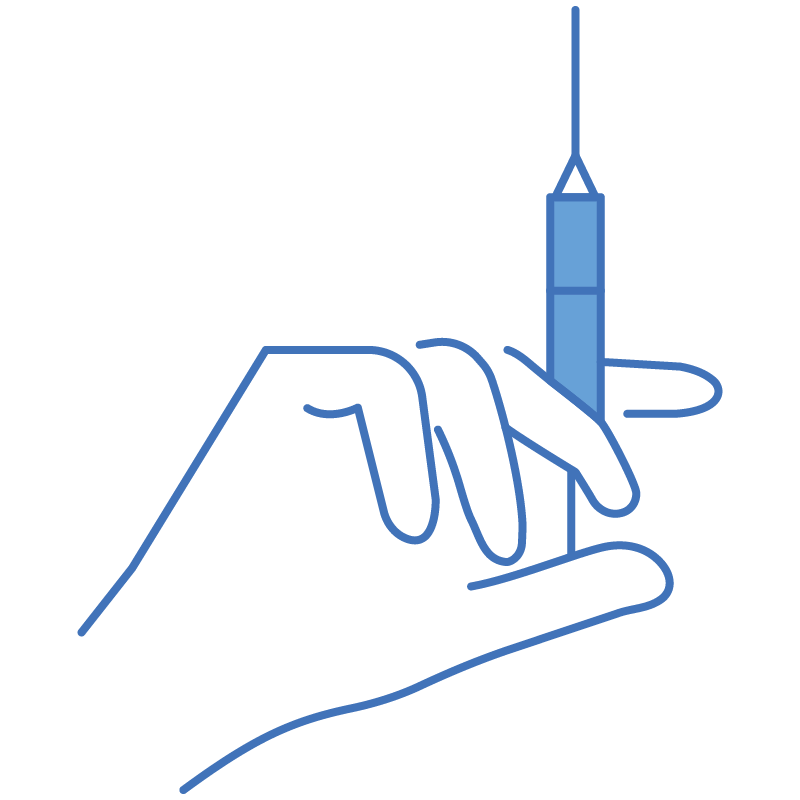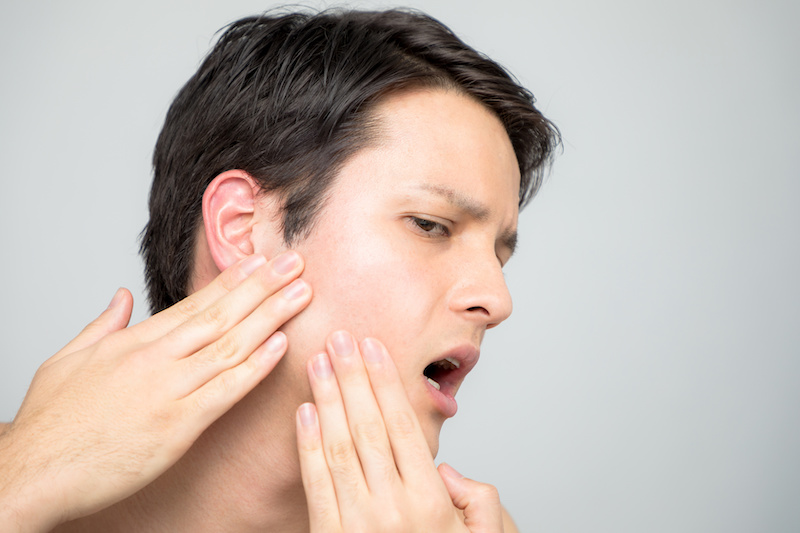What are TMJ Disorders?
Disorders of the temporomandibular joint are known as TMJ disorders. The joint is a hinge joint that connects a person’s skull to his or her jawbone. This joint can become irritated as can the muscles, tendons, and ligaments surrounding it. The pain and discomfort felt at the joint are usually an indicator that there is an issue with its function or alignment.
Have you been experiencing throbbing pain in and around your face? Is the pain shooting towards your ears, causing a headache? Are you facing problems with chewing food? If so, you may be experiencing a TMJ disorder.
TMJ disorders are a group of conditions that cause pain, discomfort, and dysfunction in the jaw joint and muscles that are responsible for jaw movement. Typically, the cause is tough to determine because numerous factors can contribute to it such as: teeth clenching; teeth grinding, or bruxism; jaw injury; arthritis.
Most of the time, pain relievers and mouthguards can assist to ease the discomfort. However, with more serious problems surgery may be necessary.

What Symptoms Are Seen with TMJ Disorders?
The most commonly described symptoms or signs of a TMJ disorder are:
- Throbbing facial pain
- Pain near or in the ear
- Tenderness or pain in jaw joint
- Headaches
- Locking of the joint, causing problematic closing and opening
- Challenging or painful chewing
A grating feeling when moving the jaw or a clicking noise when closing and opening the mouth can also be signs of a problem. When the pain persists even though the patient has taken pain relievers and utilizes self-care techniques, medical intervention is typically required. People should refer to the doctor right away if it becomes difficult to open and close the mouth to prevent further issues.
Before and After Gallery
Diagnostic Measures
Before Dr. Cohen prescribes any treatment, he will need to conduct an examination in order to better understand the issues. He will discuss your symptoms with you and then examine your jaw. If a problem is detected, an X-ray, CT scan, or MRI may be performed to reveal the problem.
Frequently Asked Questions
To help our patients make informed decisions about their oral health, here are some quick answers to common questions about TMJ and TMJ treatment options at The Dental Sedation Center.
Can Children Develop TMJ Disorder?
Yes, children can develop TMJ disorder, although it is more commonly associated with adults. In children, TMJ issues may be related to factors like jaw growth or habits such as thumb-sucking. If a child is suspected to suffer from TMJ, consult with Dr. Patric Cohen at The Dental Sedation Center. We offer full-service dentistry for the whole family.
Can TMJ Be Associated With Other Dental Problems?
TMJ disorder can be associated with other dental issues, including teeth grinding (bruxism) and teeth misalignment. These problems may contribute to TMJ symptoms and should be addressed as part of the treatment plan.
How Can I Prevent Future TMJ Problems?
Preventing future TMJ problems involves lifestyle modifications. Avoid excessive gum chewing, teeth clenching, and habits like nail-biting. Practice stress management techniques to minimize jaw tension, and consider wearing a nightguard if teeth grinding is an issue. Regular dental check-ups can also help detect and address potential problems early.
Is It Possible for TMJ to Resolve on Its Own Without Treatment?
In some cases, TMJ symptoms may improve or resolve on their own without specific treatment. This often occurs if the symptoms are mild and related to temporary factors. However, it's essential to consult a professional to evaluate your condition, as untreated or severe TMJ disorder can lead to complications.
What Happens If TMJ Is Left Untreated?
If TMJ disorder is left untreated, it can lead to worsening symptoms and potential complications. These complications may include increased pain, difficulty in opening or closing the mouth, and the development of chronic conditions like arthritis in the TMJ. Early intervention and treatment are recommended to prevent these issues.
Can TMJ Cause Long-Term or Permanent Issues?
TMJ disorder can lead to long-term or permanent issues if left untreated. Chronic TMJ problems may result in irreversible joint damage, persistent pain, and difficulty performing everyday tasks like speaking and eating. Therefore, early diagnosis and appropriate treatment are crucial to preventing long-term complications.
How Do I Know If I Need Surgery for My TMJ?
Surgery for TMJ is typically considered when conservative treatments are ineffective, and the condition is causing severe pain or impairment. Dr. Cohen at The Dental Sedation Center will evaluate your case, considering factors like the severity of your symptoms, the presence of joint damage, and your response to other treatments. Surgery is usually a last resort, and less invasive treatments are often explored first.
Is TMJ Treatment Covered by Insurance?
The coverage of TMJ treatment by insurance can vary depending on the specific insurance plan and the nature of the treatment. Some treatments, such as physical therapy or nightguards, may be partially covered, while more invasive procedures might have limited coverage. It's essential to check with the insurance provider and The Dental Sedation Center office to understand what is covered and what expenses you may need to bear.
What Treatments Are Employed for TMJ Disorders?
Numerous options are employed to treat problems related to TMJ disorders. TMJ disorders most often respond to home remedies like the following:
- Holding an ice pack against the area
- Avoiding chewing gum
- Gently stretching the jaw and neck
- Reducing stress
When home remedies are not lessening the symptoms of your temporomandibular joint disorder, you may need to seek help from a health expert. When the discomfort persists, physical therapy and pain medications are usually prescribed.
Read More
- Pain relievers, muscle relaxants, and sedatives: These are used to help a person with pain management.
- Mouthguards: These can assist in aligning the jaw while asleep and can prevent issues associated with teeth clenching or grinding.
- Injections of pain medication into the joint: These can be beneficial because they deliver the medicine right to the source.
- Physical therapy: This plays a vital role in relieving the pain associated with TMJ disorder. Exercises to stretch and strengthen jaw muscles are sometimes combined with ultrasound, moist heat, and ice.
- Education: This is a great way to understand the factors and behaviors that contribute to pain. It helps patients understand what aggravates the pain and how these triggers can be avoided.
Hear From Our Patients
Your Dentist Knows Best
How Much Does TMJ Treatment Cost?
The cost of a TMJ treatment will depend on several factors. The price can be affected by body type, type of technique performed, and even allergies. Find out more by scheduling a consultation.
Schedule a Consultation to Learn More
If you have been experiencing the symptoms of TMJ, it’s time to learn about TMJ treatment in Beverly Hills by contacting our office. Dr. Patric Cohen has the experience and skills necessary to provide the relief you need.
Related Procedures

Migraine Headaches
The nature of a migraine can vary from moderate to severe and can be pulsating. A migraine may affect only half of the head and can last for a few hours or even days.

Full Mouth Rehabilitation
A cosmetic full mouth rehabilitation program is a complex treatment that utilizes a variety of techniques and tools to address multiple concerns including restorative and aesthetic issues.

Smile Makeover
A smile makeover is a custom treatment program created just for you which helps address issues that affect the way your smile looks.

Sedation Dentistry
The use of oral conscious sedation, also referred to as sedation dentistry, is a beneficial option for patients who are fearful or apprehensive about going to the dentist’s office.






